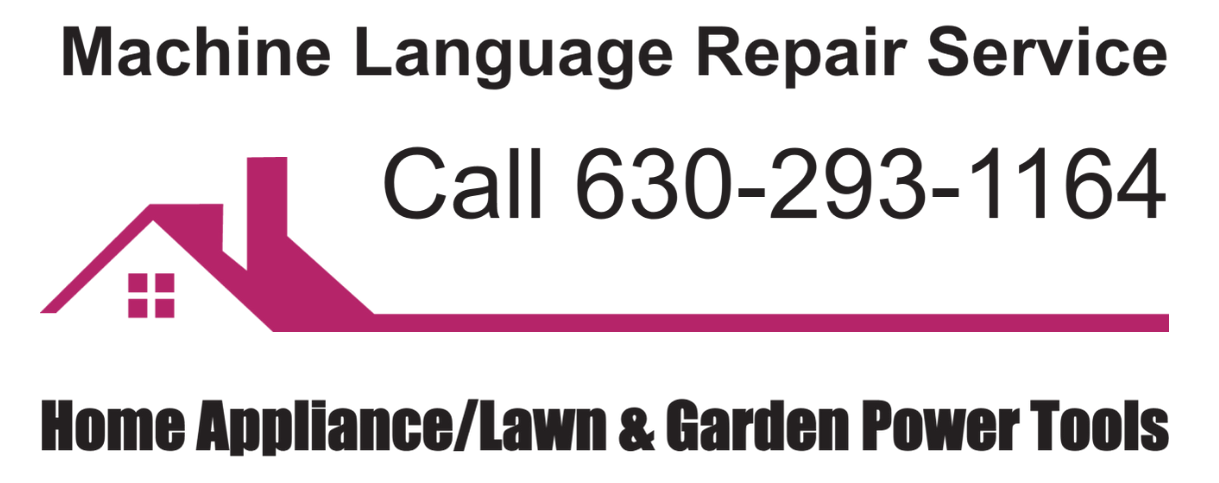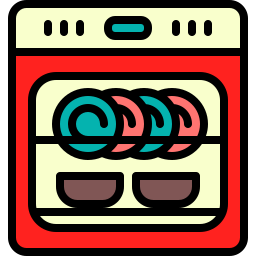Leaks
If you're having issues with your dishwasher draining, there are several things you can try. One common issue is a damaged gasket. To check if this is the problem, open the dishwasher and look for the seal around the edge of the door. If it's damaged or dirty, it may be causing the leak. Wipe the gasket with a damp rag and make sure it's in the correct position. If you still cannot solve the problem, call Machine Language the appliance whisperer.
Won't Drain
If your dishwasher doesn't drain, this can be a significant pain and inconvenience, particularly if it causes the dishwasher to flood. This failure must be taken seriously, as it can cause significant water damage to the room in which your dishwasher is located if not addressed. The most frequent reason for a dishwasher failing to drain is because of a faulty check valve in the dishwasher's drain sump. If this valve malfunctions, it causes a backup of water in the dishwasher, failing to drain. If the valve is not moving properly when filled with water, then it is not working properly. A professional should replace this valve as, unfortunately, there is not much of an at-home fix available for this common glitch.
Over-filing or Under-filling
When your dishwasher either overfills or under-fills, it can be frustrating, and in the case of overfilling, it can be potentially damaging in case the dishwasher floods. The most seen reason for glitches with overfilling or under-filling is a problem with the dishwasher's water inlet valve. This is the valve that regulates the flow of water into the dishwasher, and it can become worn or damaged with time. Another reason these malfunctions might occur is if there is an impairment with the float switch in the dishwasher. The float switch is the component in the dishwasher that tells it how much water is contained within it so that it can be regulated. It can malfunction when dirt or debris gets into it. It is best to call a technician to deal with this issue.
Dishes Still Dirty
Dirty dishes after washing is a fairly common impairment with some dishwashers. However, fortunately, there is usually a relatively easy fix. Stacking your dishes in a way that obstructs the spray arms of the dishwasher is the most frequent reason for this failure To fix this impairment, you should try to place large dishes on their side and toward the bottom of the dishwasher. Another reason for this often-seen malfunction is that the spray arms of your dishwasher are not functioning for some reason. Simply get a damp rag and clean the spray arms thoroughly, and make sure that the holes in it through which the water flows are not occluded by some debris, and this should fix your glitch.
Wet Dishes
Generally speaking, your dishes should be dry when the dishwasher's cycle is over. If your dishes are not dry when the cycle is over, there may be a problem with your dishwasher. This type of issue is typically caused by a faulty heating element or high-limit thermostat. The heating element is responsible for heating the water in the dishwasher, and the high-limit thermostat is what prevents the dishwasher from overheating. When either of these is malfunctioning, your dishes may not dry properly. This is another form of glitch that, unfortunately, requires professional repair, so be sure to call Machine Language for service.
Tips for maintaining and extending the lifespan of dishwashers:
- Clean the dishwasher regularly: Wipe down the interior and exterior regularly to prevent the buildup of dirt, dust, and grime.
Run hot water before starting the dishwasher: Running hot water before starting the dishwasher can help ensure that the water entering the dishwasher is hot and can help the dishwasher perform better.
Load the dishwasher correctly: Load dishes correctly, facing them towards the center of the dishwasher and leaving enough space between dishes to allow for proper water flow.
Use the right detergent: Use detergent specifically designed for dishwashers to prevent damage to the dishwasher and ensure proper cleaning.
Check and clean the filters: Check and clean the filters regularly to prevent clogs and improve performance.

